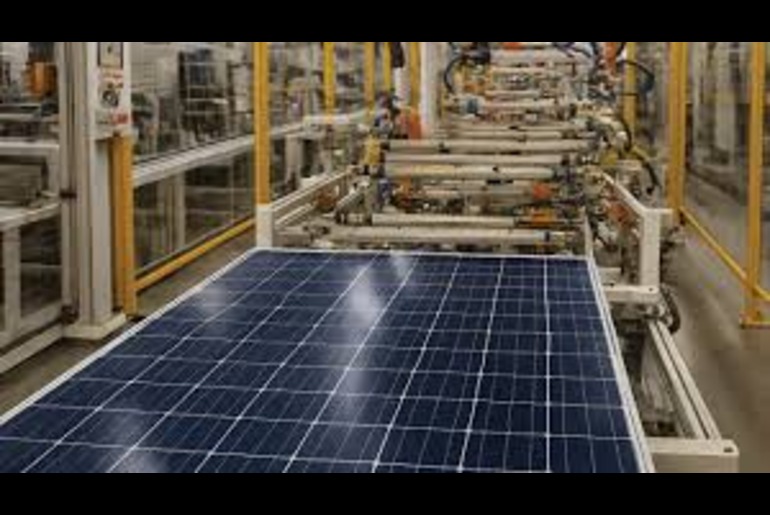India has reached a significant milestone in solar manufacturing with 18.6 GW of solar photovoltaic (PV) module capacity and nearly 10 GW of solar cell capacity now installed under the Government of India’s Production Linked Incentive (PLI) scheme.
In a response to a query in the Rajya Sabha, Minister of State for New & Renewable Energy, Shripad Naik, confirmed that as of June 30, 2025, manufacturers listed under the Approved List of Models and Manufacturers (ALMM) have reported operational capacities of 18.5 GW for modules, 9.7 GW for cells, and 2.2 GW for ingot-wafer production.
This development marks a major stride in India’s push toward self-reliance in renewable energy manufacturing and supports the nation’s broader clean energy targets.
He explained that the date of operationalization of the awarded solar PV manufacturing capacities would depend upon a variety of factors, including the time taken to acquire lands, financial closure, ordering and procurement of capital equipment, installation and commissioning, etc, and no specific date or timeframe could be ascribed to it.
Letters of Award (LoA) were issued under Tranche-I of the PLI Scheme for High Efficiency Solar PV Modules to three successful bidders, i.e., Shirdi Sai Electricals, Reliance Industries (RIL), and Adani New Industries, to establish 8.737 GW of fully integrated solar PV module manufacturing facilities.
Presently, under the second tranche, LoAs have been granted to 11 successful bidders to establish 39.6 GW of fully/ partially-integrated solar PV module manufacturing capacity. The firms that are chosen within the scheme can establish their production facilities at any location in India.
The MNRE has already installed a solar cell manufacturing capacity of 26.35 GW in India and hopes to increase the capacity to about 42 GW as of June 1, 2026.
The PRI Scheme of high-efficiency solar PV modules intends to escalate local production of these solar PV modules and, in this way, minimize the importation in the solar energy industry.
On April 21, 2021, the Ministry of New & Renewable Energy (MNRE) released the scheme guidelines of PLI scheme on high efficiency solar PV modules (Tranche-I). The Commerce Ministry data indicate the reduction in solar module imports into India by nearly 10 percent between FY22 and FY25, as the imports dropped to $2,151.75 million against $3363.21 million.
As a way of giving a market to local manufacturers, the government has directed that solar PV cells and modules supplied under schemes, including the CPSU Scheme Phase-II, PM-KUSUM Components B & C, and PM Surya Ghar: Muft Bijli Yojana, be Indian made.
Basic Customs Duty (BCD) has also been charged on the import of solar PV cells and modules by the government. Moreover, it has waived customs duty on bringing into the country some goods for the manufacturers of solar PV cells/modules.



